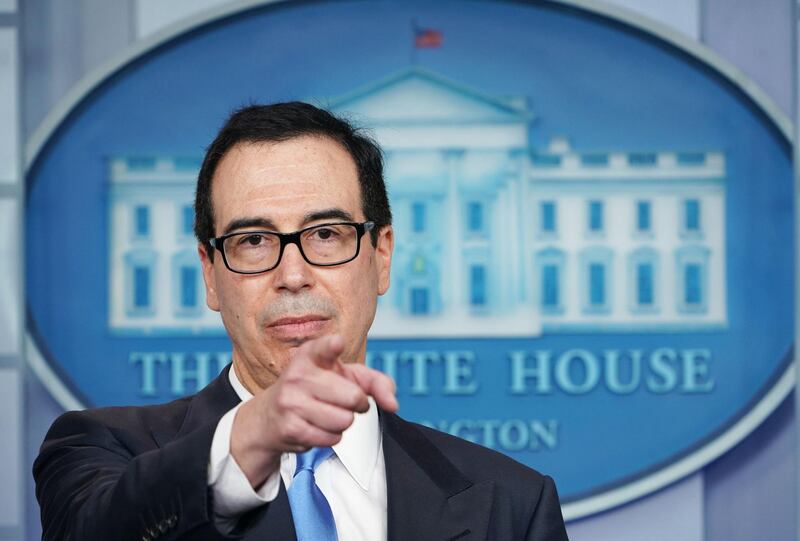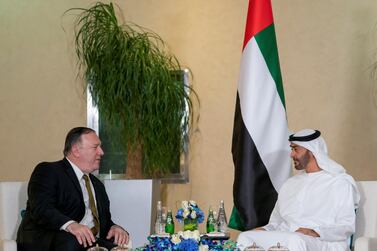The Trump administration on Monday issued new sanctions, against the office of Iran's supreme leader Ayatollah Ali Khamenei and commanders in the revolutionary guard, while threatening to sanction Foreign Minister Javad Zarif this week.
US President Donald Trump promised to impose the sanctions after Tehran shot down a $150 million (Dh550.9m) US surveillance drone near the Strait of Hormuz last week.
Mr Trump said the latest sanctions would also target the inner circle of Mr Khamenei.
“The supreme leader of Iran is the one who ultimately is responsible for the hostile conduct of the regime," he said.
"He is respected within his country. His office oversees the regime’s most brutal instruments."
Mr Trump said that the sanctions were in response to Iranian escalations in the Gulf, including the drone incident.
“I think a lot of restraint has been shown by us – a lot of restraint – and that doesn’t mean we’re going to show it in the future,” he said.
Mr Trump last week ordered then abruptly cancelled planned air strikes against Iran after the incident.
He described Iranian attacks as “not good and not appropriate” and said he would “deny the supreme leader and the supreme leader’s office, and those closely affiliated with him and the office access to key financial resources”.
“These measures represent a strong and proportionate response to Iran’s increasingly provocative actions,” Mr Trump said.
Eight commanders from Iran's Islamic Revolutionary Guard Corps have also been blacklisted. In April, the Trump administration designated the Guard as a terrorist organisation.
US Treasury Secretary Steven Mnuchin said the US would blacklist Iranian Foreign Minister Javad Zarif and block "billions" more in Iranian assets this week.
Mr Mnuchin said Washington did not consult allies on the sanctions, which are the latest in a series to target Iran since the US withdrew from the 2015 nuclear deal in May last year.
Tensions have rapidly increased in the Gulf since May this year, when the Trump administration revoked waivers on the import of Iranian oil, squeezing its economy.
Since then, attacks on six oil tankers near the Strait of Hormuz shipping lanes have raised the spectre of war and pushed up oil prices.
The US has blamed the attacks on Tehran.
The Trump administration hopes its "maximum pressure" campaign will force Iran to renegotiate a nuclear deal that also constrains its activities in the region.
The newly announced sanctions show the US is "doubling down" on its strategy, said Ariane Tabatabai, an expert on Iran at the Rand Corporation.
The US has already sanctioned more than 80 per cent of Iran’s economy, Secretary of State Mike Pompeo said.
"The only path forward is for Iran to negotiate a comprehensive deal that addresses the full range of its destabilising behaviour," Mr Pompeo said on Monday.
"Until it does, our campaign of diplomatic isolation and maximum economic pressure will continue."






